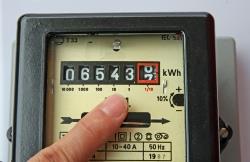It is increasingly common to find that electricity meters (pre-paid or conventional) are bypassed by the occupants of properties, be they commercial or residential, and high or low income.

Where a meter has been bypassed or where a meter is faulty and is not recording the consumption, it is the industry practice to replace the meter with one that is working, and take readings for three months of the consumption. The consumption is then averaged across those three months, and an average monthly consumption figure arrived at, which is applied per month to the entire period during which the theft (or non-metering) took place.
This article addresses several key issues raised in relation to electricity theft, specifically in relation to a multi-dwelling setting.
How do you discover, and prove, electricity theft?
There are a few ways, most of which are common sense. The first is to see illegal connections to an electricity meter. The second is to compare the readings on all sub-meters within a complex, with the municipal account – where there is a massive under-recovery, chances are that there is electricity theft. An internal audit of the consumption by a particular unit in a complex by checking meters, as compared to the metered consumption for that unit, could also reveal that electricity theft is taking place.
What to do when electricity theft is discovered?
Report the matter to the South African Police Services, if there is an illegal connection.
If the theft is taking place internally (namely by an owner or tenant in a complex), the Body Corporate must take action to correct the bypass, which might require the intervention of the property owner (if he is not the tenant), the police, or even an order of court if the tenant refuses to allow the meter to be corrected.
What are deemed consumption charges?
Where a meter has been bypassed or where a meter is faulty and is not recording the consumption, it is the industry practice to replace the meter with one that is working, and take readings for three months of the consumption. The consumption is then averaged across those three months, and an average monthly consumption figure arrived at, which is applied per month to the entire period during which the theft (or non-metering) took place.
If electricity theft is proven, what are the consequences for the culprit?
Penalties for stealing electricity are governed by the Greater Johannesburg Metropolitan Electricity By-laws and the common law. Connection to the main supply by-passing the electrical meter constitutes creation of an unauthorised connection and fraudulent use of electricity.
The culprit could be charged criminally, and face conviction and imprisonment or any of the other conventional criminal penalties. There are other laws such as POCA (the Proceeds of Crime Act), which further allow the appropriate authority (the Hawks) to seize and confiscate assets owned by the culprit, where they were purchased with proceeds of the crime, or used in the commission of the crime (which might include the house itself).
Additionally the culprit could be charged with meter tampering charges by the local authority, and in addition, for deemed consumption charges based on the average of the culprit’s actual metered consumption, for the period in respect of which the theft occurred. Specifically:
-
Any person who contravenes or fails to comply with the by-laws shall be guilty of a criminal offence and upon conviction be liable for a fine not exceeding R2 000, or 6 months' imprisonment. The owner or occupier shall be deemed guilty of the breach of by-law unless they can show they did not know and still exercised reasonable diligence in that time period.
-
The City of Johannesburg's practice is to charge a tampering fee of R2 650.40 excluding VAT to the consumer; but this fee is not authorised by their by-laws.
- The municipality has the option of calculating the sum to charge for electricity at the highest rate applicable from the date of contravention. The owner and consumer/occupier will be jointly and severally liable for this contravention.
If the culprit is not the owner, what could the consequences be for the owner?
The law provides that property owners are ultimately responsible for all charges incurred in connection with the property, which includes deemed consumption fees for unlawful use, and meter tampering fees.
Each municipality has a different policy, however, as to how it deals with electricity theft, and not all municipalities will hold the property owner liable for the potential charges that might arise as a result of the theft.
In relation to the body corporate, the owner in a sectional title will be liable for all legal costs incurred by the Body Corporate in enforcing compliance with the rules of the Sectional Title Act (including the rules that the owner and/or tenant must not contravene the law, including committing a crime such as electricity theft/meter tampering). This could include all costs of the body corporate in investigating the theft, changing or rectifying the meter, recovering any losses, and collection commission and/or legal fees thereon. These amounts would be raised as charges on the owner’s levy account by the body corporate, and interest would run thereon in the ordinary course. The body corporate could take legal action against the owner if the amounts levied go unpaid, in the same manner as it could if the owner had not paid its levies.
In addition, the owner could be charged as an accessory to the theft, or meter tampering.
Recommendations
Seek professional advice immediately upon discovering or suspecting electricity theft, to ensure that you are taking all measures to combat it, and reduce any potential liability that might result. - Chantelle Gladwin, Partner at Schindlers Attorneys









